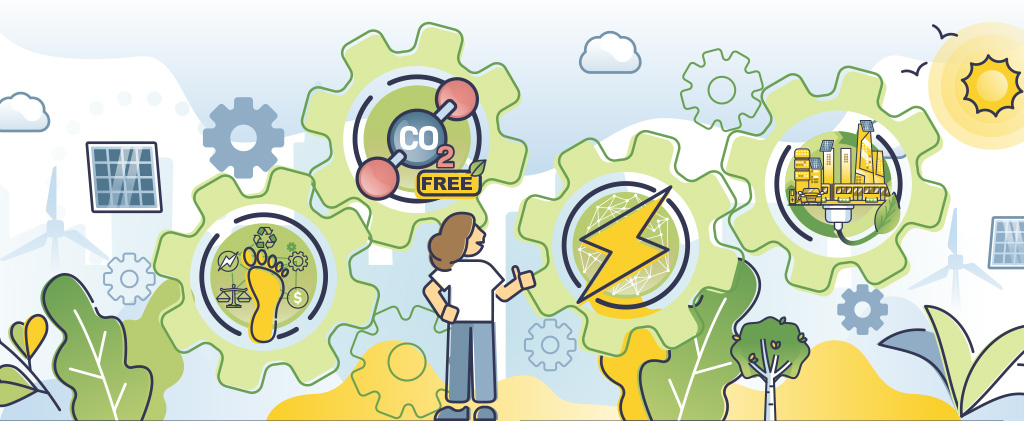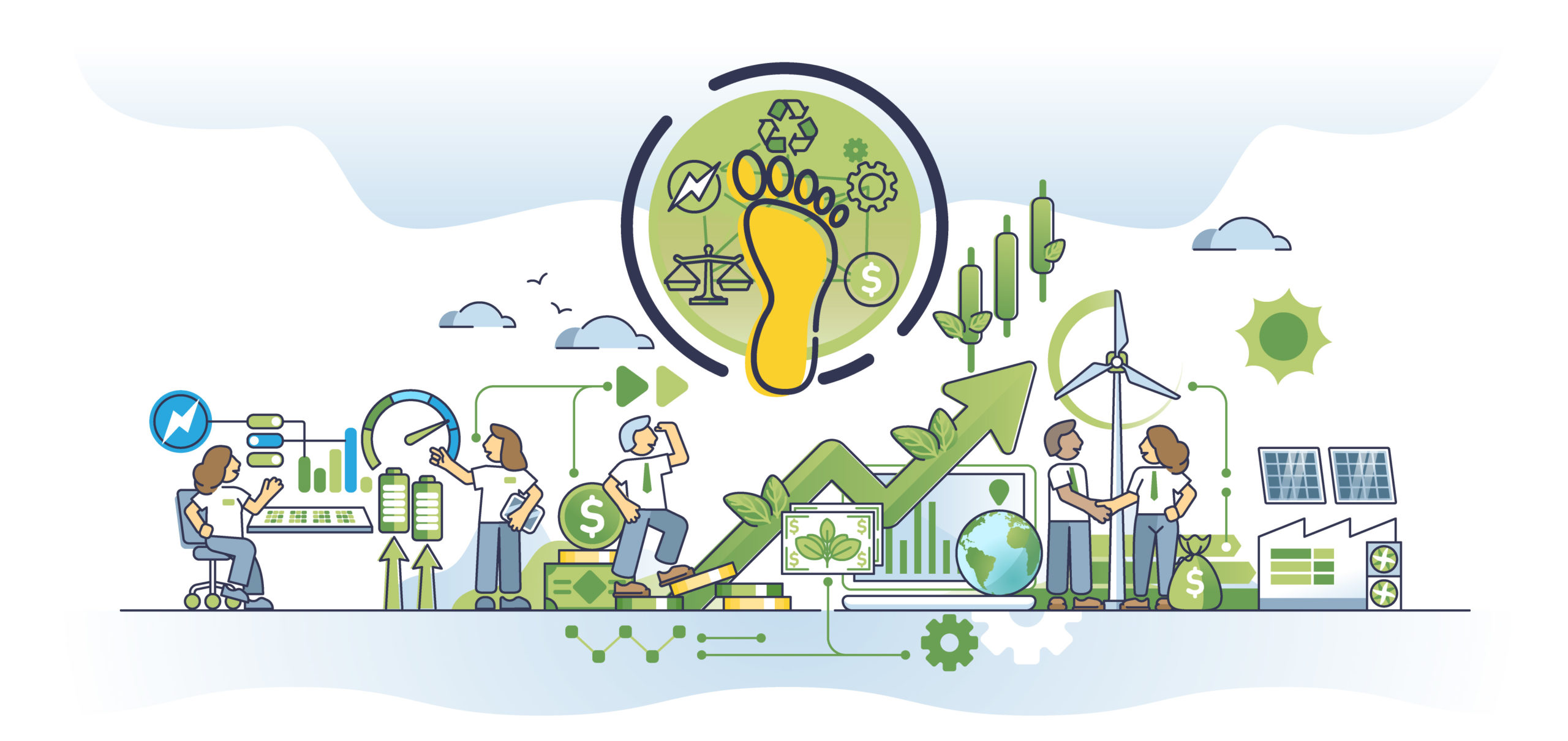

Target audience
Professionals (decision-makers, specialists, entrepreneurs, etc) working in energy transition, territorial development, environmental planning, or sustainable investing within:
- communal / cantonal / federal authorities
- environmental or engineering consultancies / associations
- companies in the energy sector or in the clean tech industry
- financial and investment institutions
- private or public organisations aiming to engage in sustainable net-zero pathways
Introduction
Understanding and addressing the complex challenges associated with transitioning to a sustainable energy future requires a holistic and systemic approach. How can we lead the energy transition while balancing economic viability, social acceptability, and environmental sustainability?
The Sustainable Energy Systems Engineering: Integrated Approach to Energy Transition programme enables participants to adopt a multidisciplinary approach, integrating the technical, economic, environmental, social, and ethical skills needed, to assess sustainability performance with a systemic perspective across the entire value chain.
For an organisation, investing in energy transition isn’t just a matter of compliance – it’s a strategic move to secure financial resilience, competitive advantage, and long-term viability.
The DAS in Sustainable Energy Systems Engineering: Integrated Approach to Energy Transition is a true win-win project for organisations wanting to embrace energy transition, while investing in upskilling their workforce. Upon completion of the Certificate of Advanced Studies (CAS) in Integrated Approach to Energy Transition programme, the participant carries out an energy transition practical project, ideally within their employer’s organisation, while benefiting from the expert advice of EPFL and HES-SO professors.
Don’t miss this unique opportunity to equip your teams with the right skills today to ensure your business thrives in tomorrow’s economy.
Objectives
- Understand holistically the energy system and the sustainability challenges (energy markets & economics, planetary boundaries, health and environmental impacts, circular economy, public policies & legal frameworks, renewable energy technologies, etc.)
- Analyse and model energy transition pathways through system integration and optimisation at a territorial level
- Acquire life cycle assessment (LCA) expertise to assess the environmental impacts of energy conversion, storage and distribution technologies
- Evaluate social impact and acceptance of energy projects
- Design strategies and public policies to activate a sustainable energy transition within the constraints imposed by economic, social and political factors
- Carry out an energy transition practical project applying an integrated approach
Cursus & Certification
The Diploma of Advanced Studies (DAS) in Sustainable Energy Systems Engineering: Integrated Approach to Energy Transition combines face-to-face and synchronous online teaching and consists of:
- Completion of the CAS in Sustainable Energy Systems Engineering: Integrated Approach to Energy Transition (5 months)
- Application project (min. of 600h)
- Report production
- Individual oral assessment
Title obtained: Diploma of Advanced Studies (DAS) in Sustainable Energy Systems Engineering: Integrated Approach to Energy Transition delivered by EPFL, 30 ECTS credits. Consult the Academic Regulations
Programme
Step 1: CAS PROGRAMME & PROJECT DEFINITION
- Completion of the CAS in Sustainable Energy Systems Engineering: Integrated Approach to Energy Transition
October 27, 2025 to March 2026 - DAS Application project topic definition, e.g: Define decarbonisation roadmap for local, cantonal or federal authorities / Identify barriers, levers and mitigation plan for renewable infrastructure / Frame opportunities and risks of decarbonisation technologies in a business plan, etc.
- Setting up the framework for project implementation within the organisation
——————————————–
Step 2: DAS APPLICATION PROJECT
The application project represents a minimum of 600 hours of personal work carried out within a company (estimated completion time of 6 to 8 months at 50% activity rate on the project).
- Completion of a personal application project, ideally within the organisation of one’s own employer, that demonstrates the participant’s ability to holistically approach an energy transition project
- Supervision and advice from academic experts in the field
- Evaluation: Report and oral assessment
Application Projects Call for Proposals
If your organisation (public or private) is looking to implement an energy transition project but lacks the necessary resources, you are in the right place. Sponsor and host a participant to lead a DAS application project within your company! Contact us for more information:
sustainable.energy@epfl.ch
Organisation
- Industrial Process and Energy Systems Engineering (IPESE), School of Engineering (STI), EPFL Valais-Wallis, Switzerland
- Institute of Sustainable Energy, HES-SO Valais-Wallis, Switzerland
- Energy Center (CEN), EPFL, Switzerland
Programme Academic Directors
- Prof. François Maréchal, Head of Industrial Process and Energy Systems Engineering group, EPFL
- Prof. Manuele Margni, Institute of Sustainable Energy, HES-SO Valais-Wallis
Steering Committee
- Prof. François Maréchal, Head of Industrial Process and Energy Systems Engineering group, EPFL
- Prof. Manuele Margni, Institute of Sustainable Energy, HES-SO Valais-Wallis
- Prof. Gaëtan Cherix, Director of the School of Engineering (HEI), HES-SO Valais-Wallis
- Prof. Sophia Haussener, Head of the Laboratory of Renewable Energy Science and Engineering, EPFL
- Dr. Yasmine Calisesi, Executive Director of the EPFL Energy Center
- Rigas Hadzilacos, Deputy Executive Director of Formation Continue UNIL-EPFL
DAS Academic Leadership
- Prof. Manuele Margni, HES-SO
- Prof. Michaël Aklin, EPFL
Contact
For academic questions:
Dr. Jean-Marie Fürbringer, Programme Executive Director of MAS, DAS and CAS Sustainable Energy Systems Engineering
sustainable.energy@epfl.ch
Practical Information
Course venue
- Online
- Onsite: Energypolis, Sion, Switzerland
Course fee
20’000.– Swiss francs
CAS fees and industrial project supervision included
Enrol
Admission requirements
Master’s degree from a higher education institution (EPF, HES, University), or another degree (in a field related to the programme) deemed equivalent by the Steering Committee*
* Exceptionally, candidates who do not meet the above requirements may be considered for admission, provided they can demonstrate a sufficient level of qualification with another engineering degree in a relevant domain and at least 5 years’ professional experience in the field.
Candidates interested in completing the DAS but uncertain about where to undertake their application project at the time of enrolment, should register for the CAS programme. They have the flexibility to secure an internship position at a later stage. Whenever possible, the programme organisers will facilitate connections with companies seeking interns.
Registration
Admission on file to submit to Formation Continue UNIL-EPFL. Please join to the registration form:
- Letter of motivation
- CV
- Copies of diplomas obtained
Registration deadline
June 27, 2025
Number of participants is limited.
In the media
- Energies go Green, article (in English and French) published in the EPFL magazine “Dimension” on March 14, 2024



